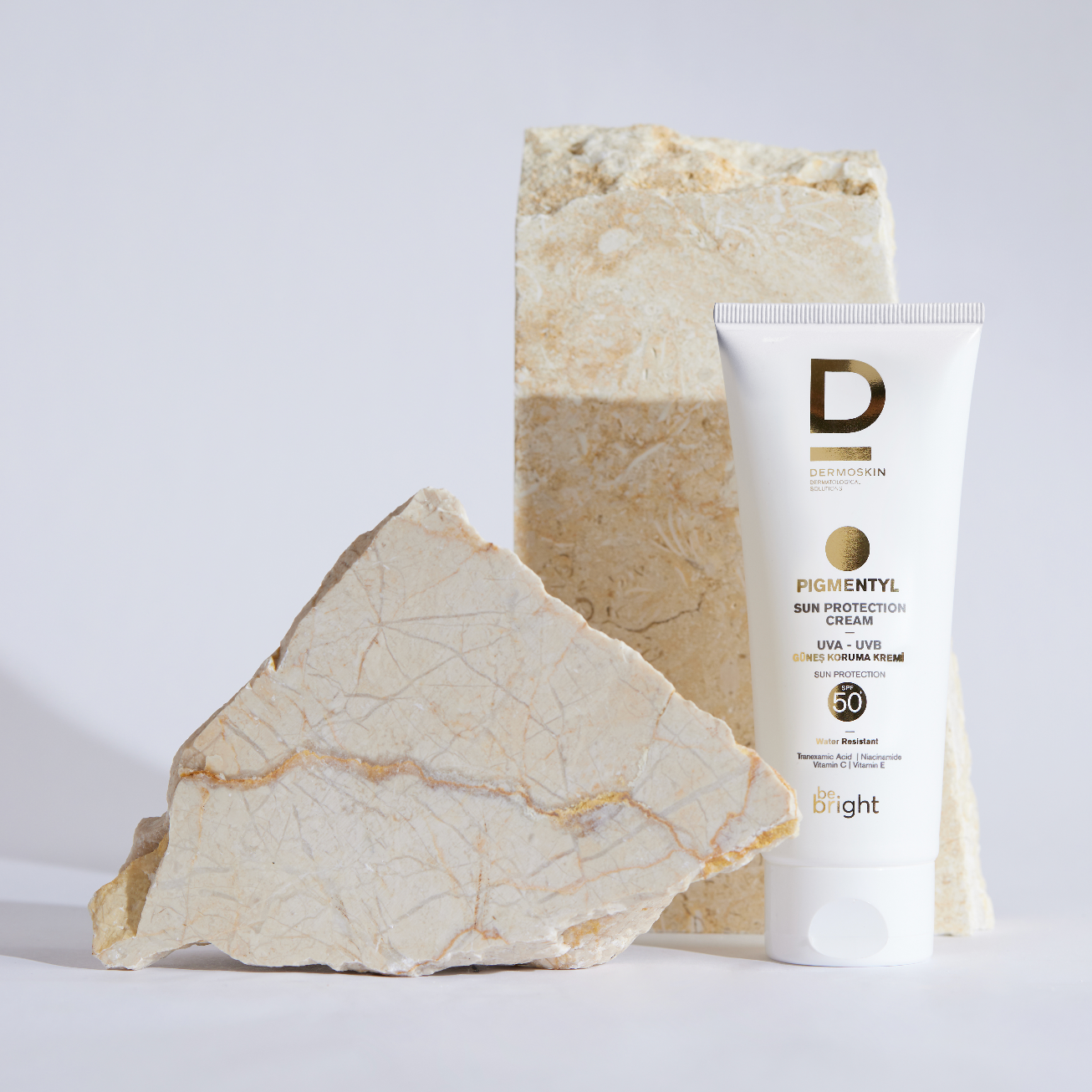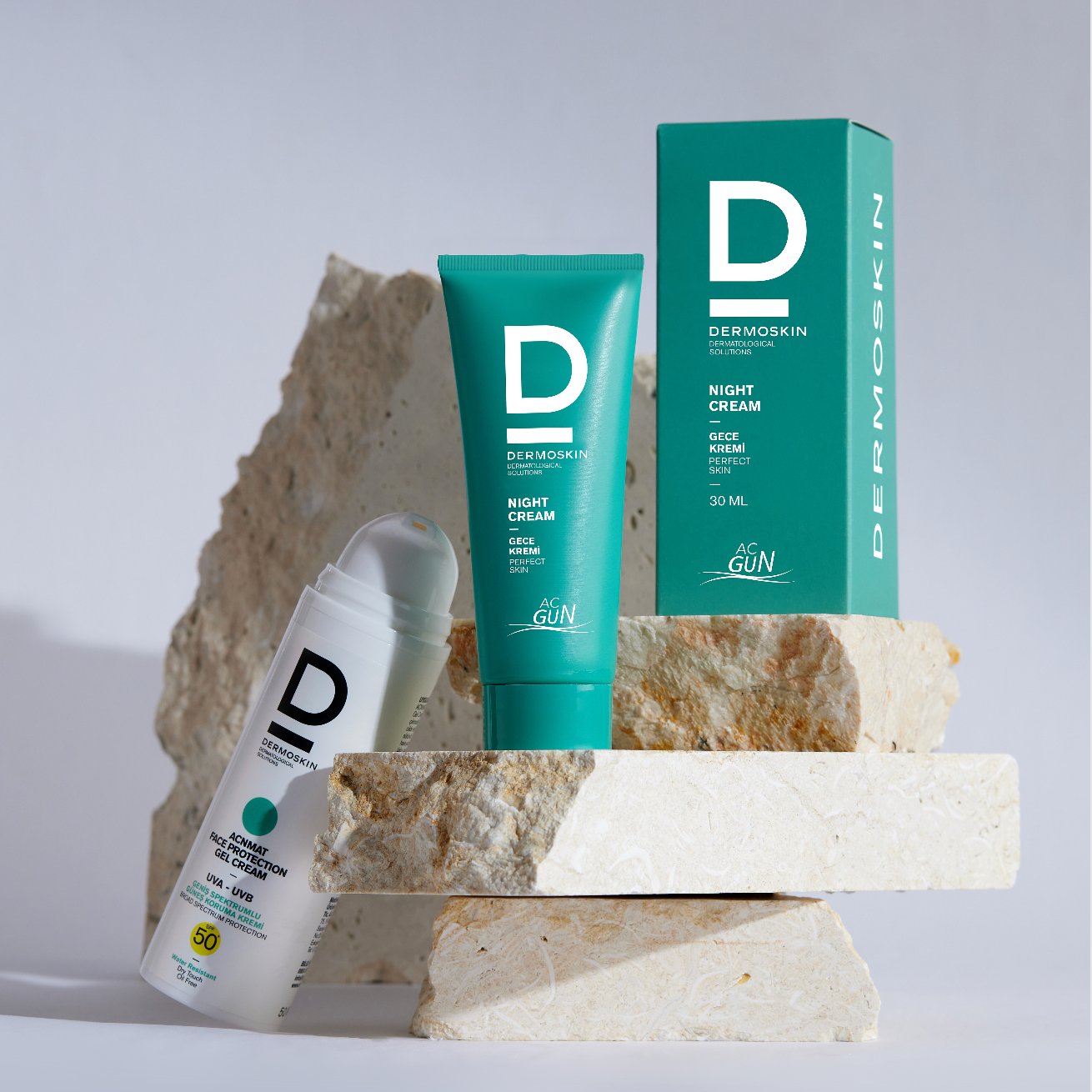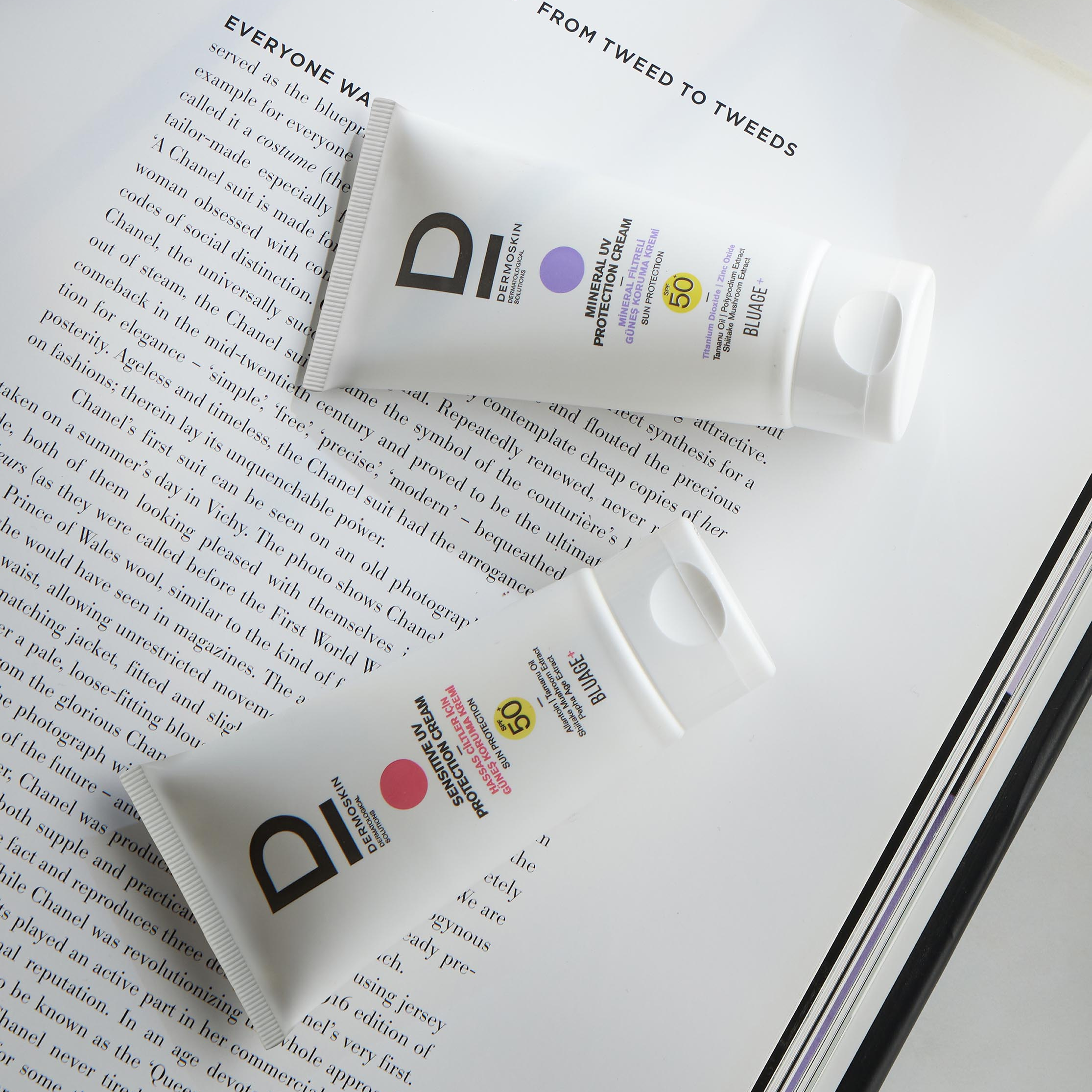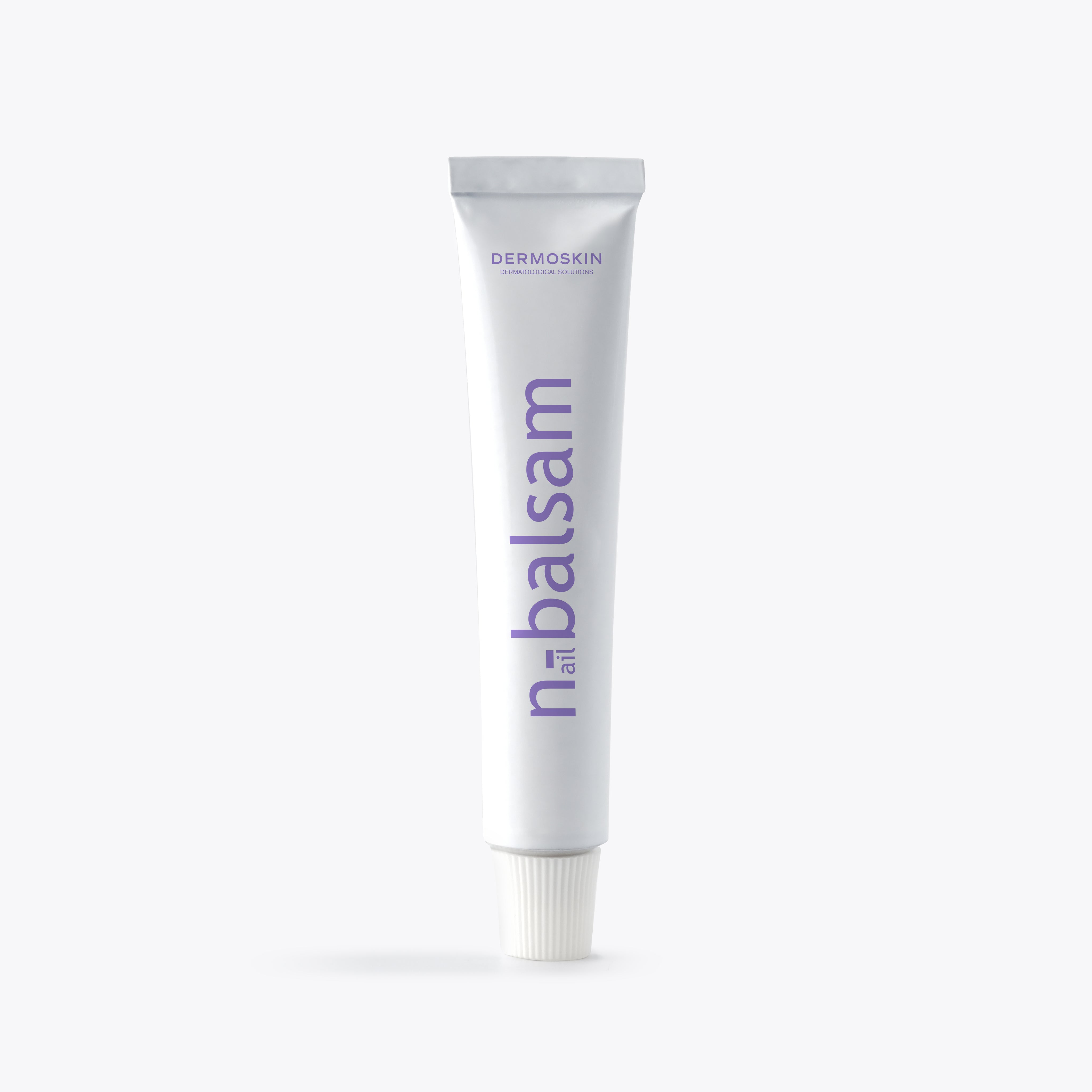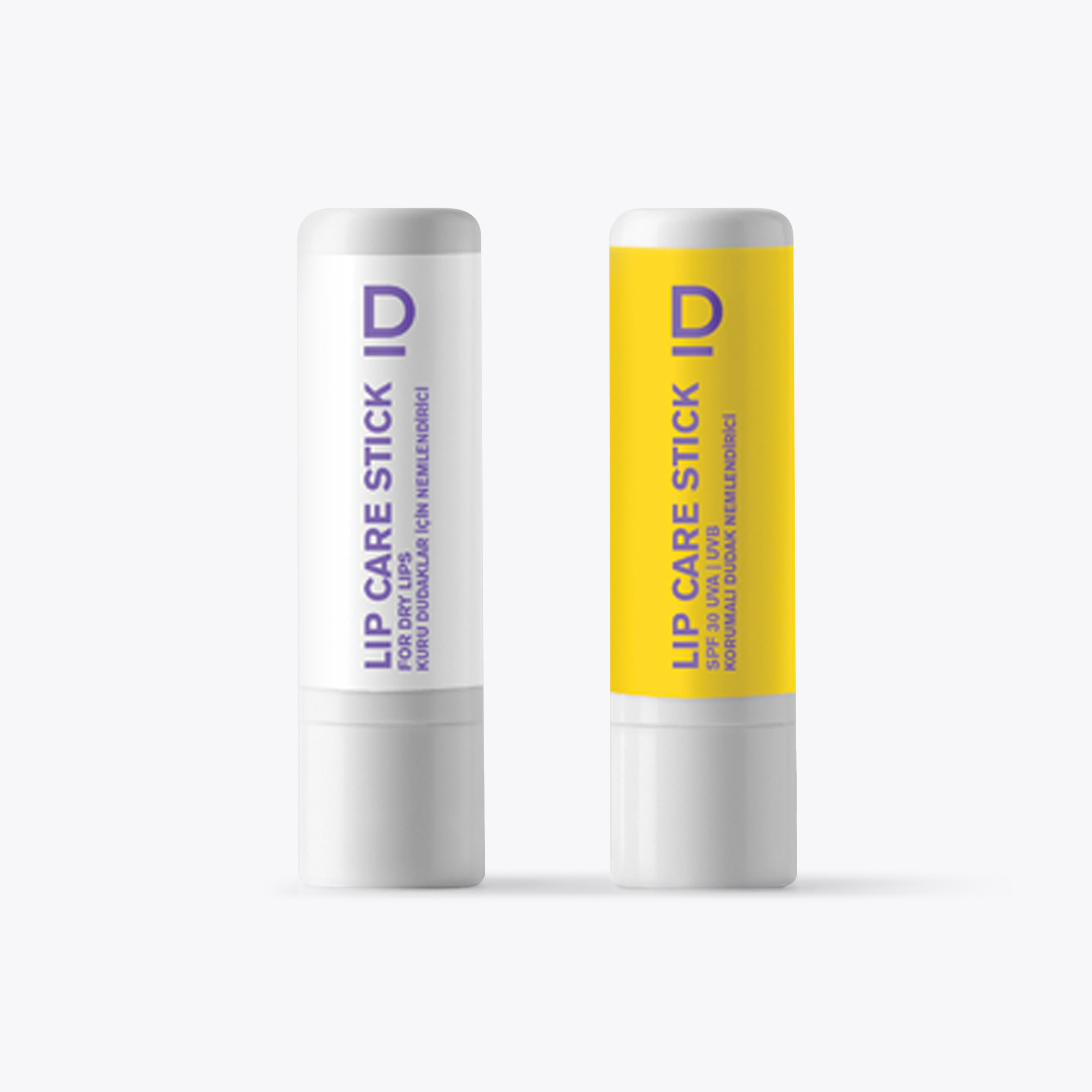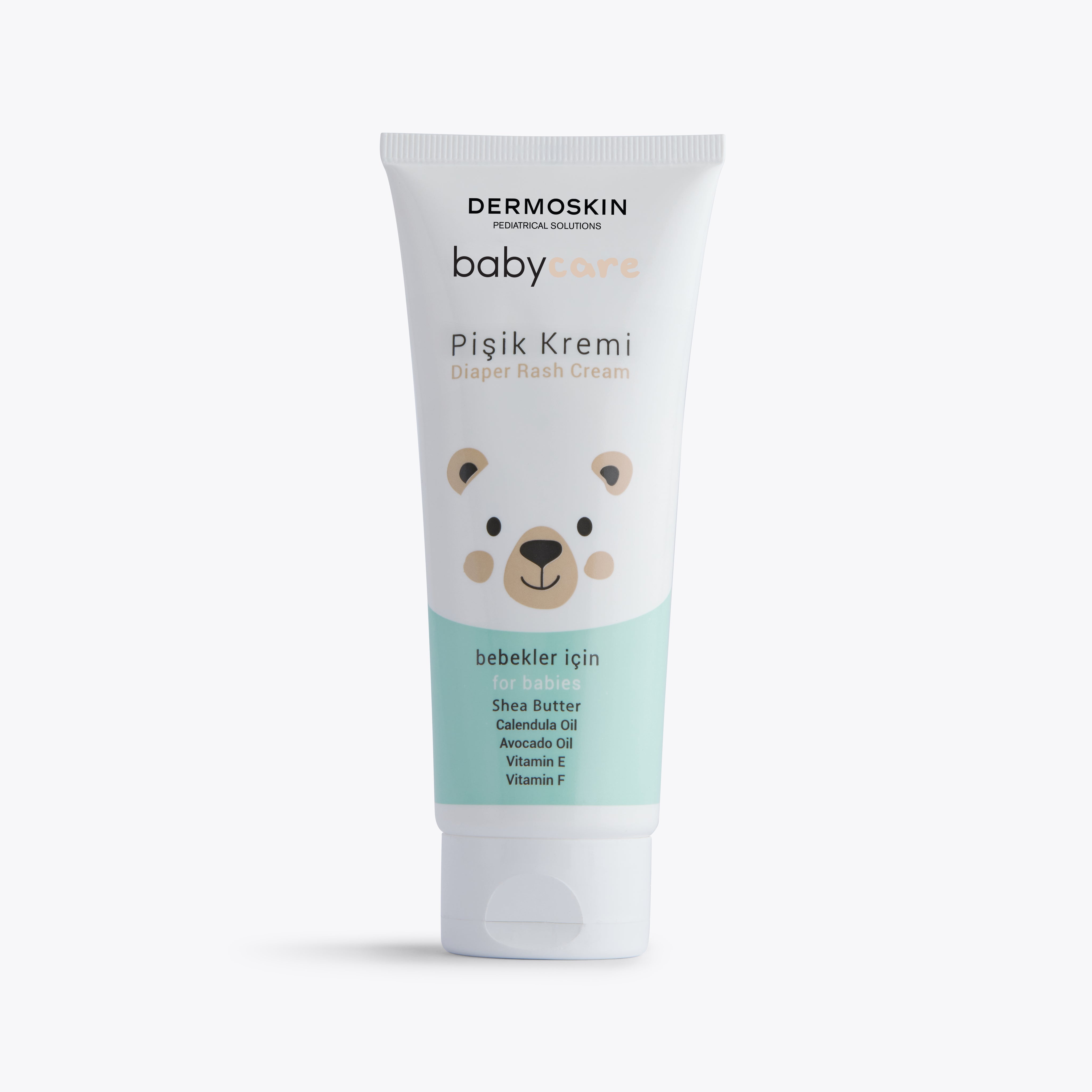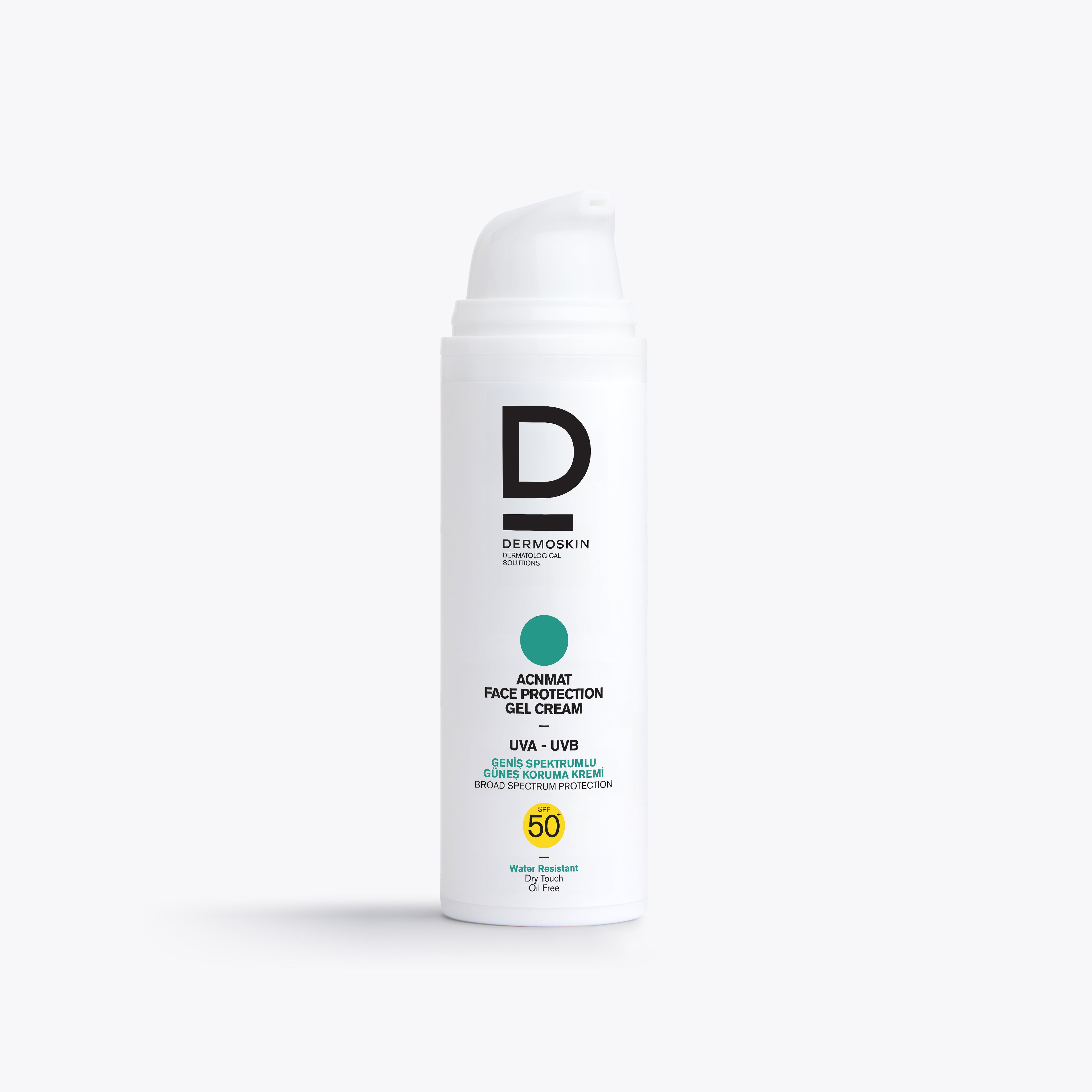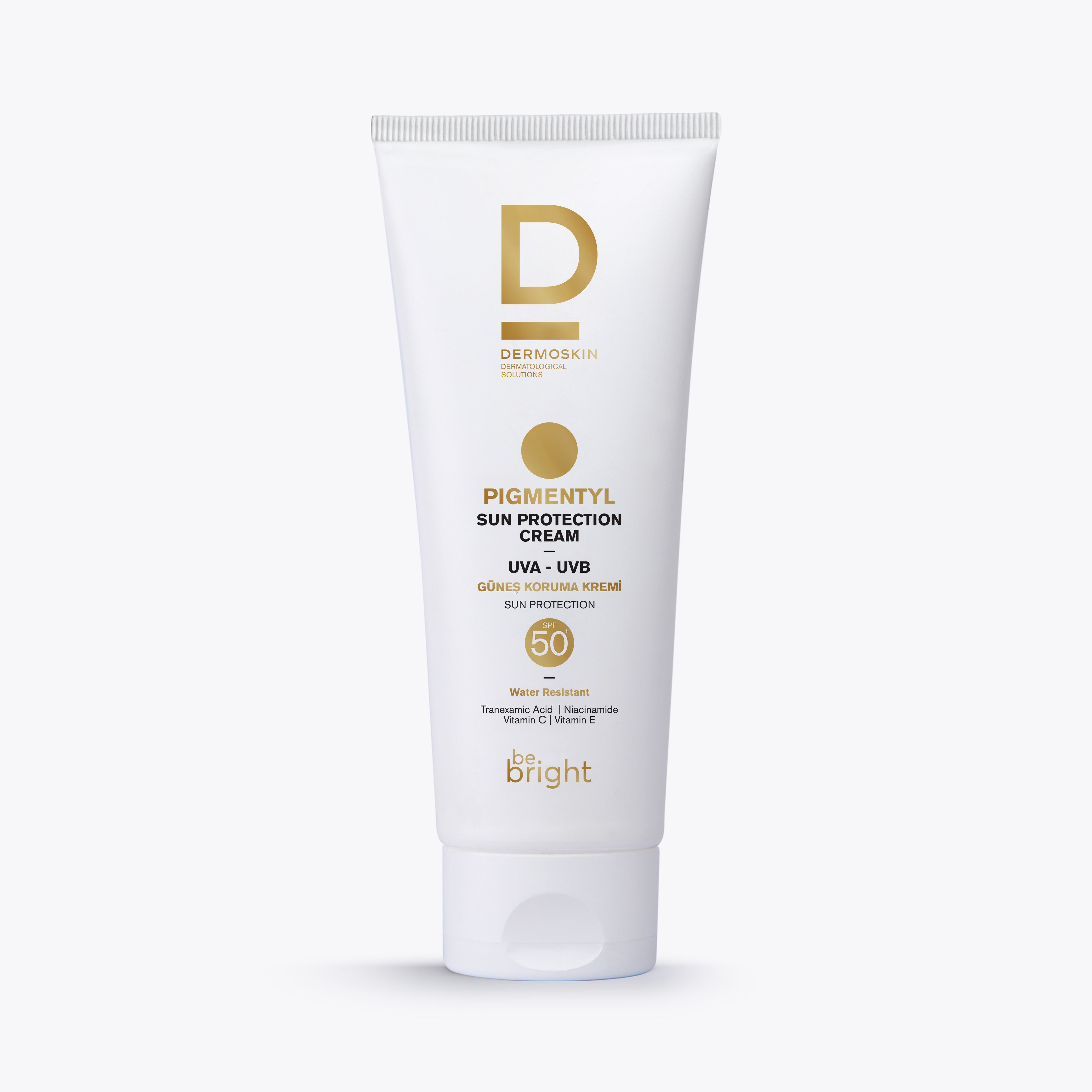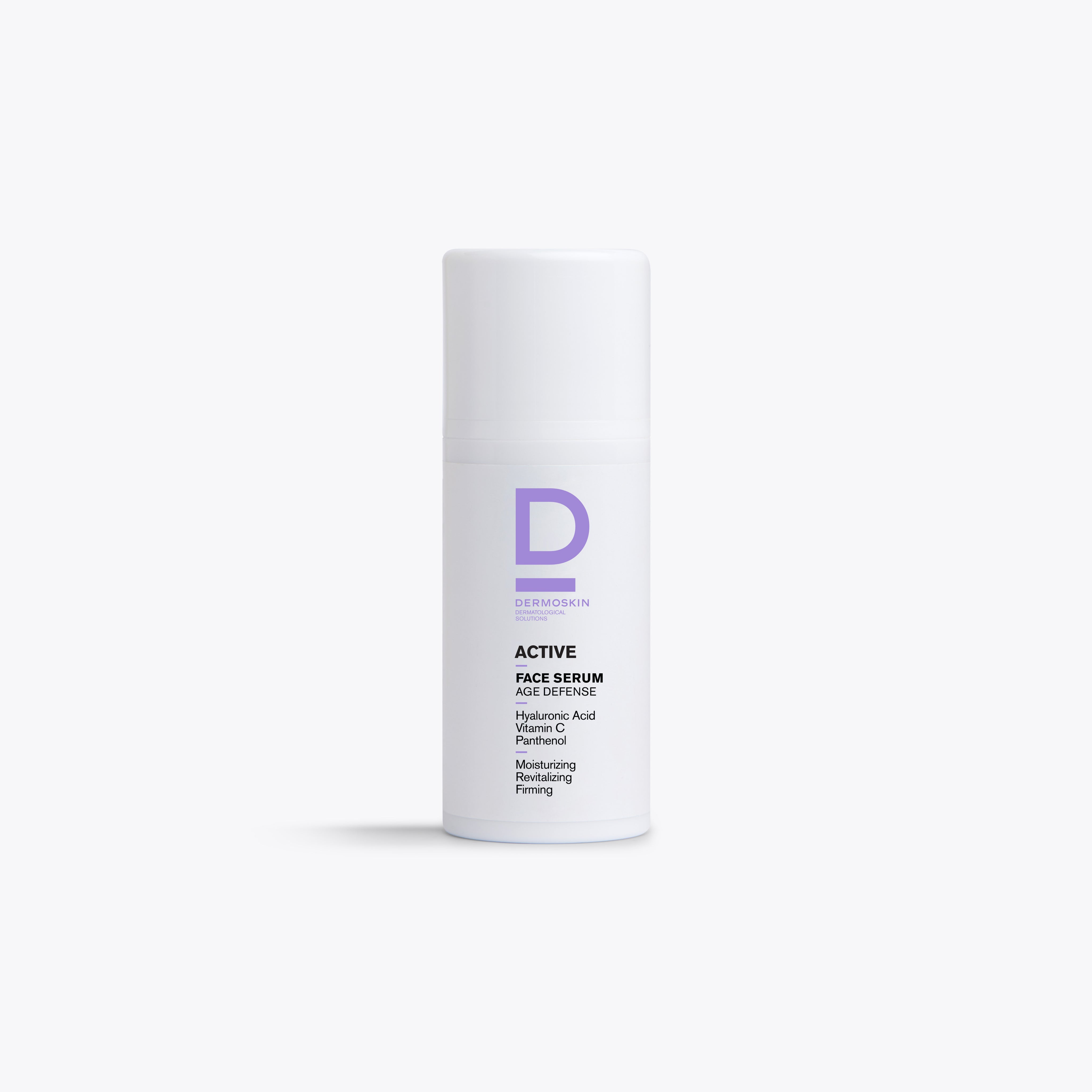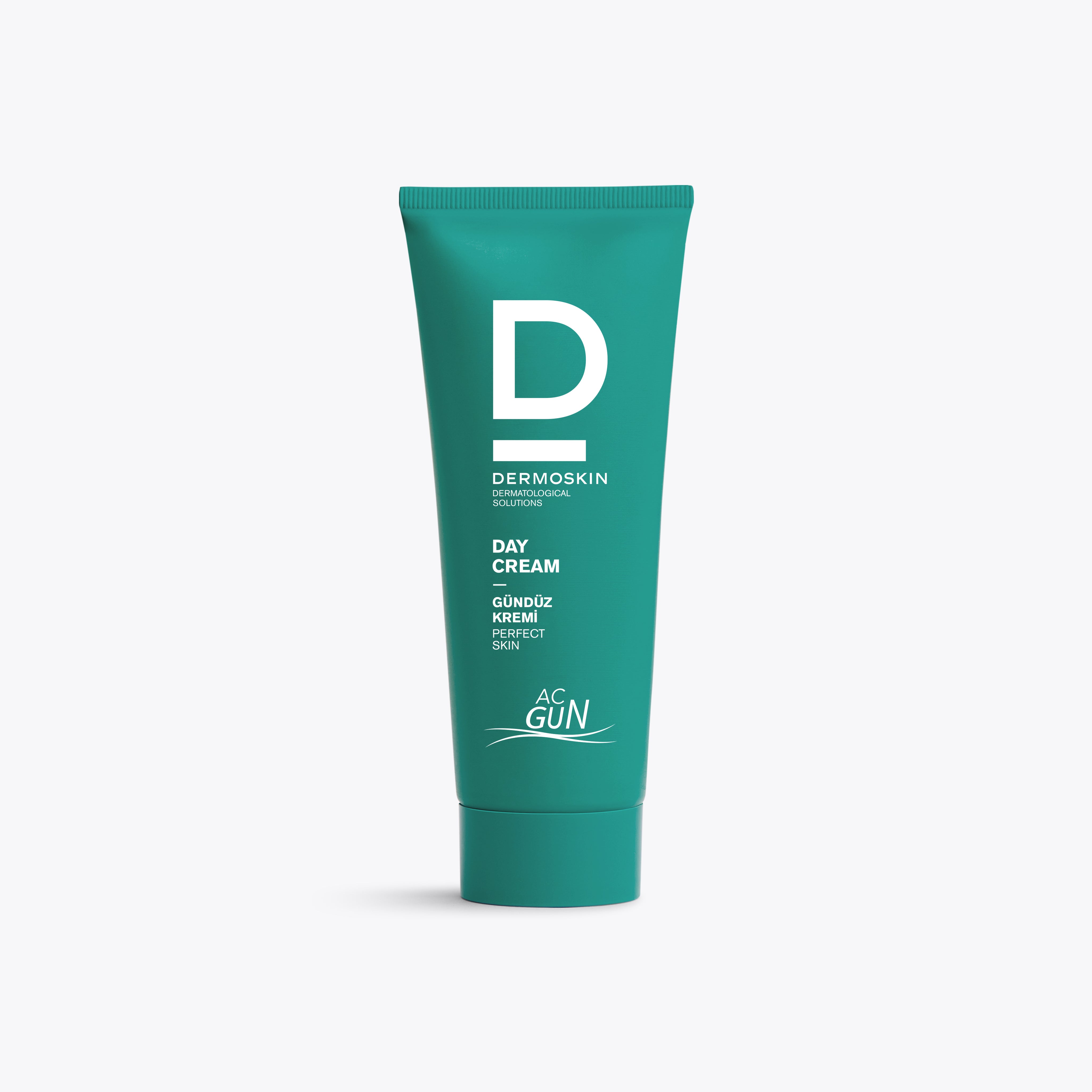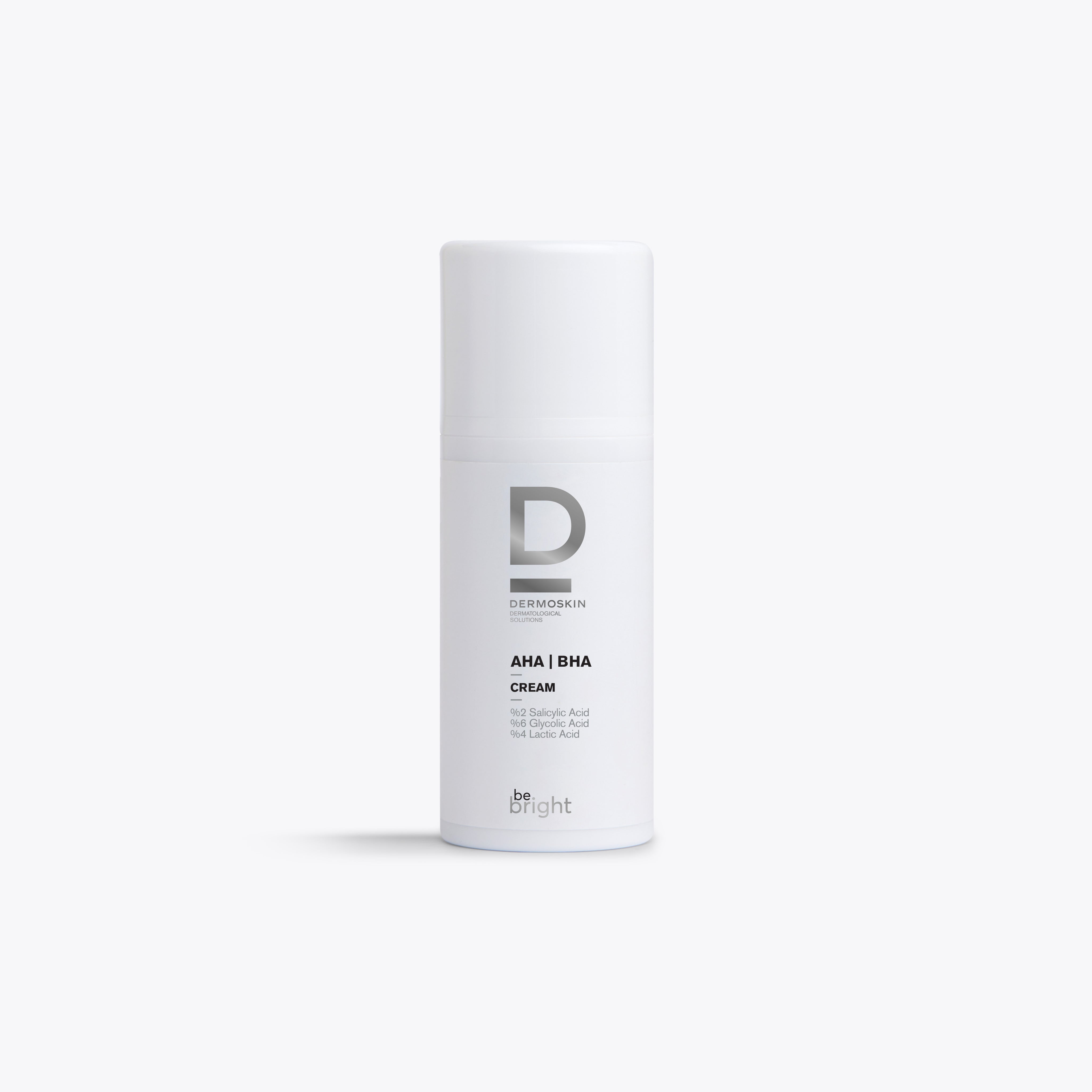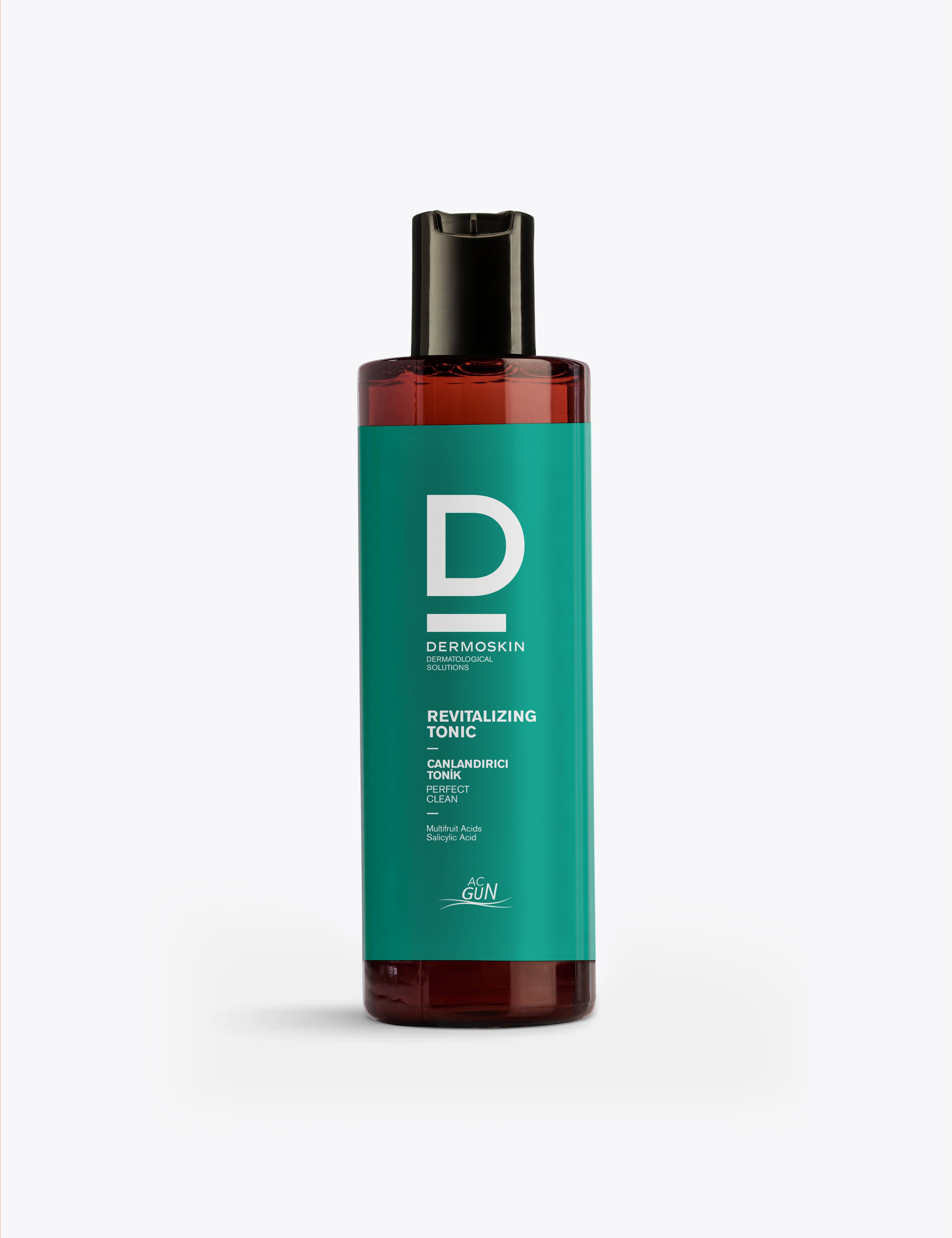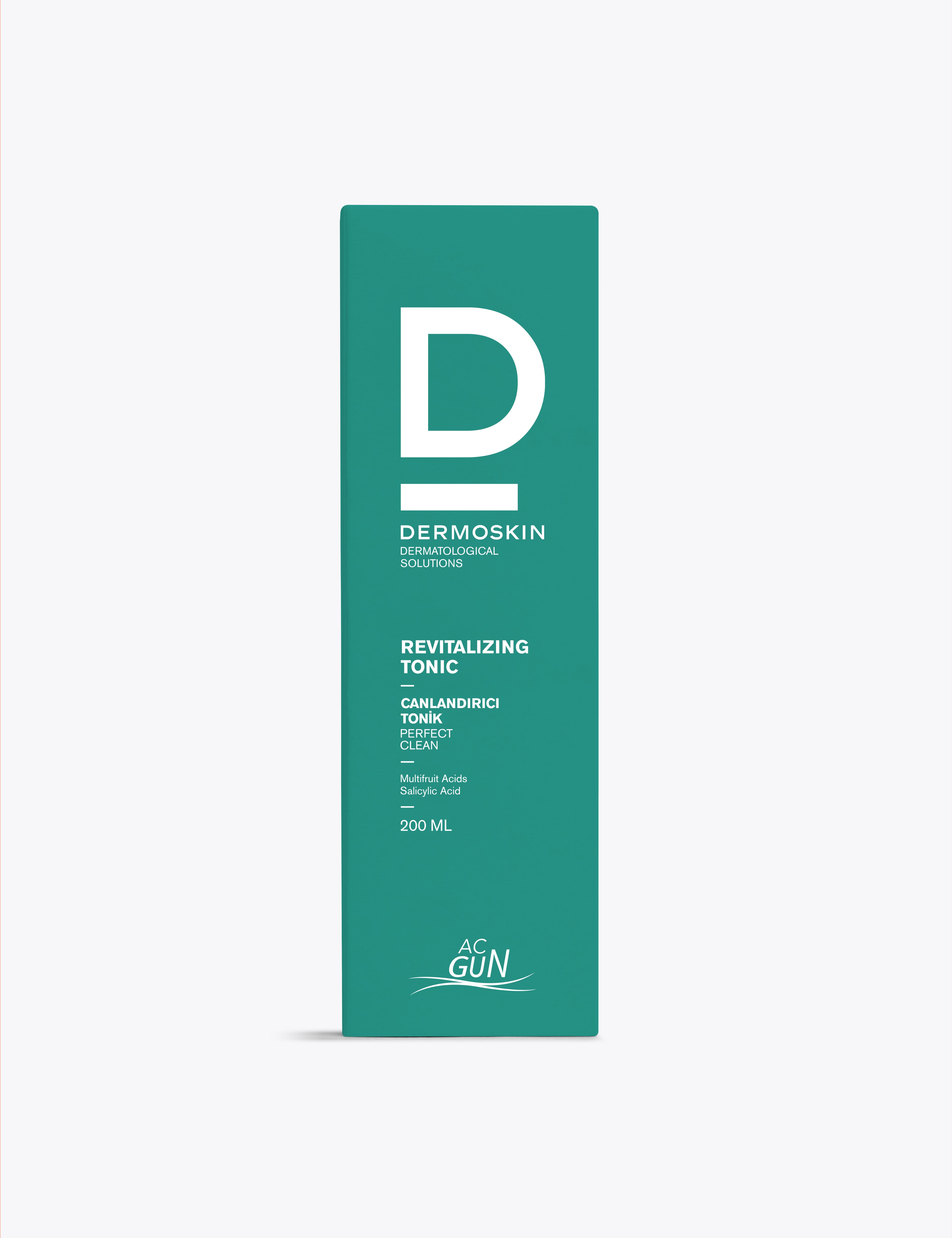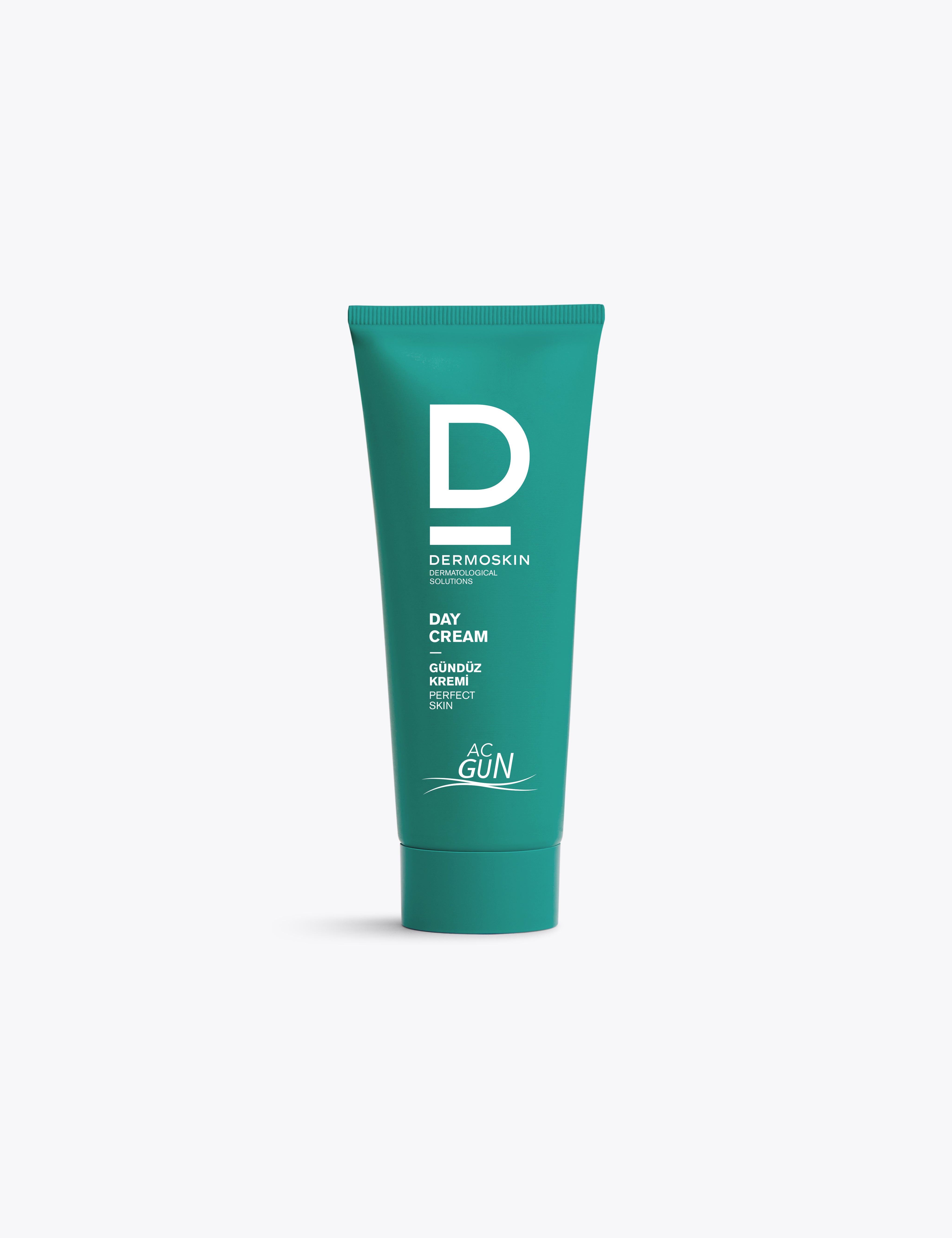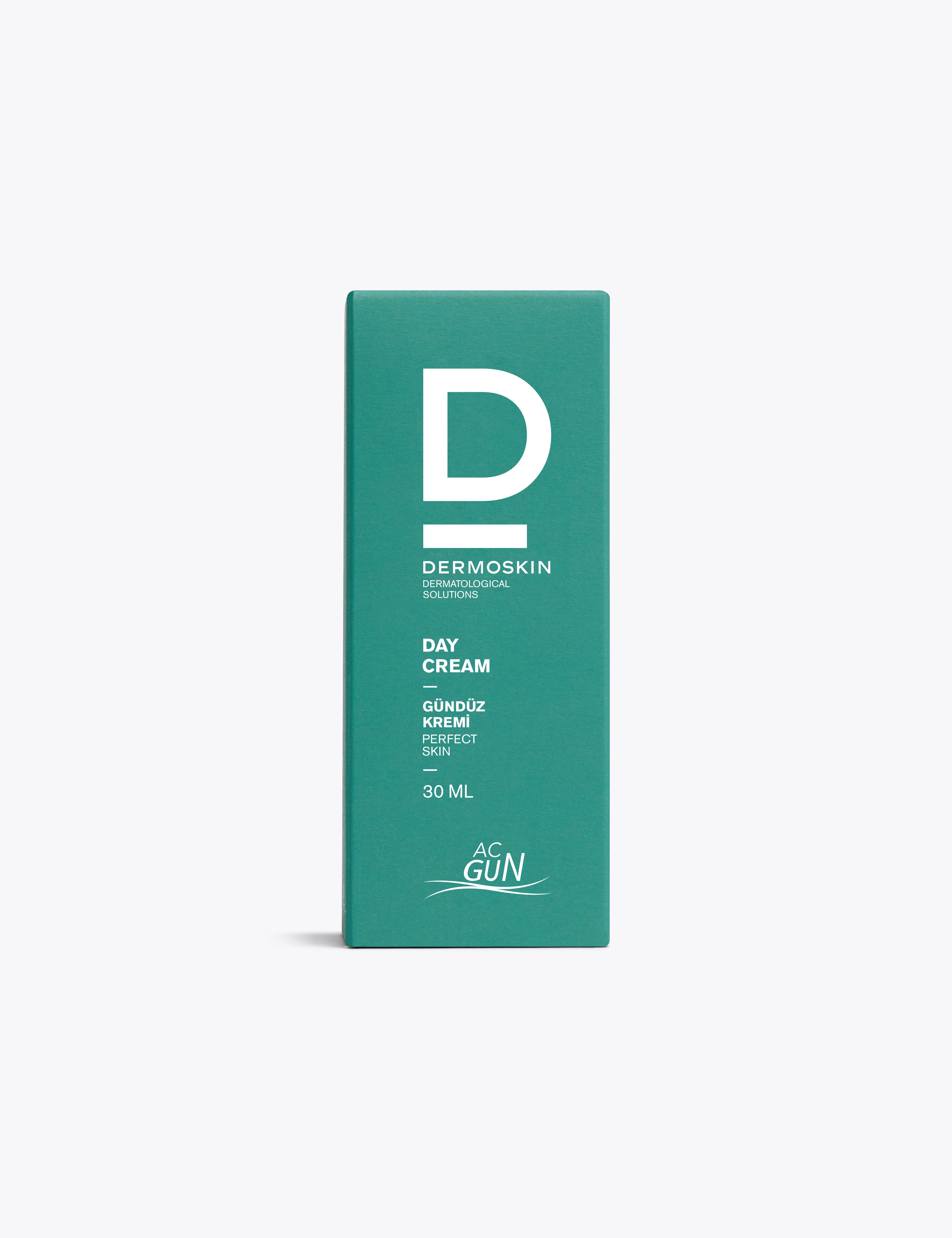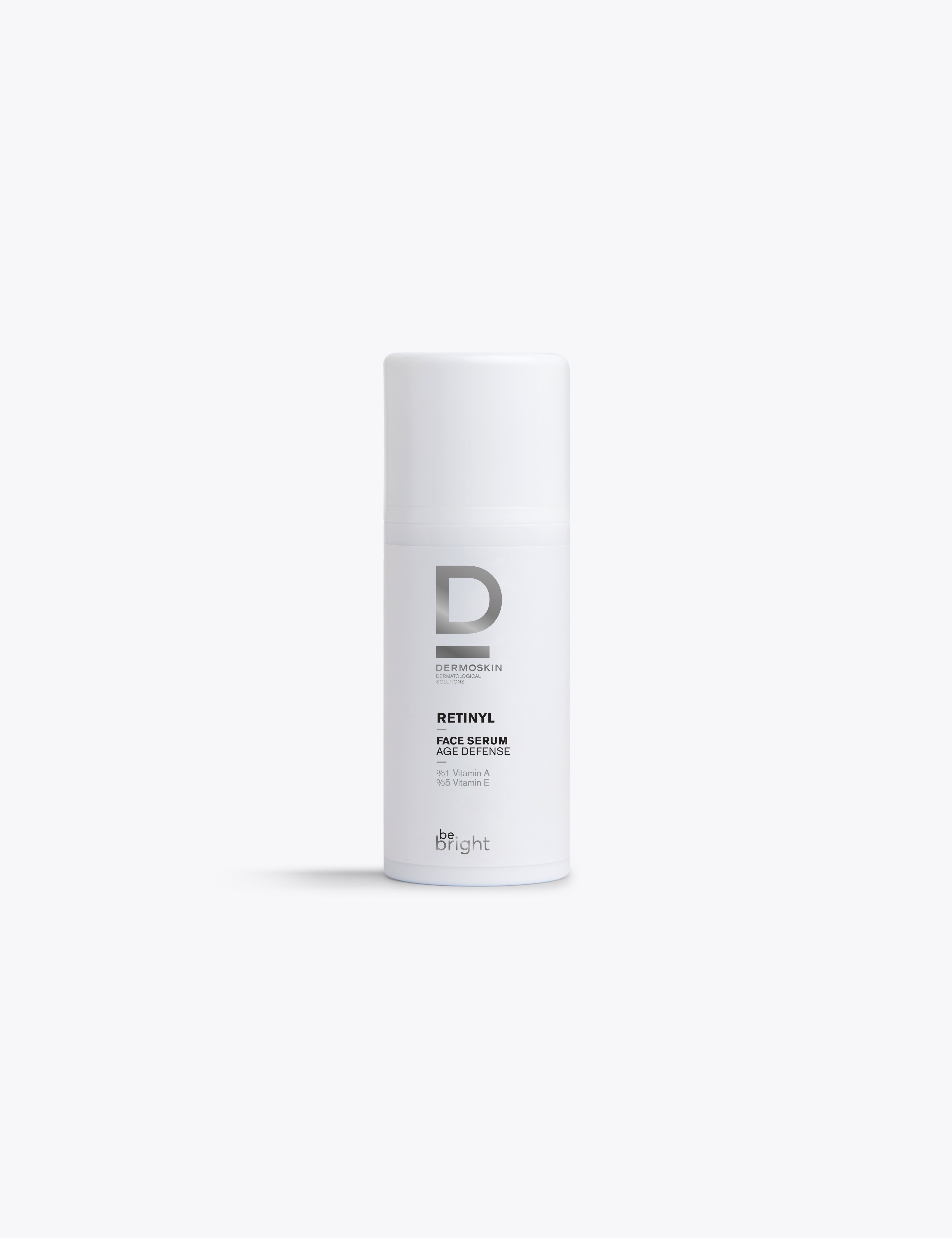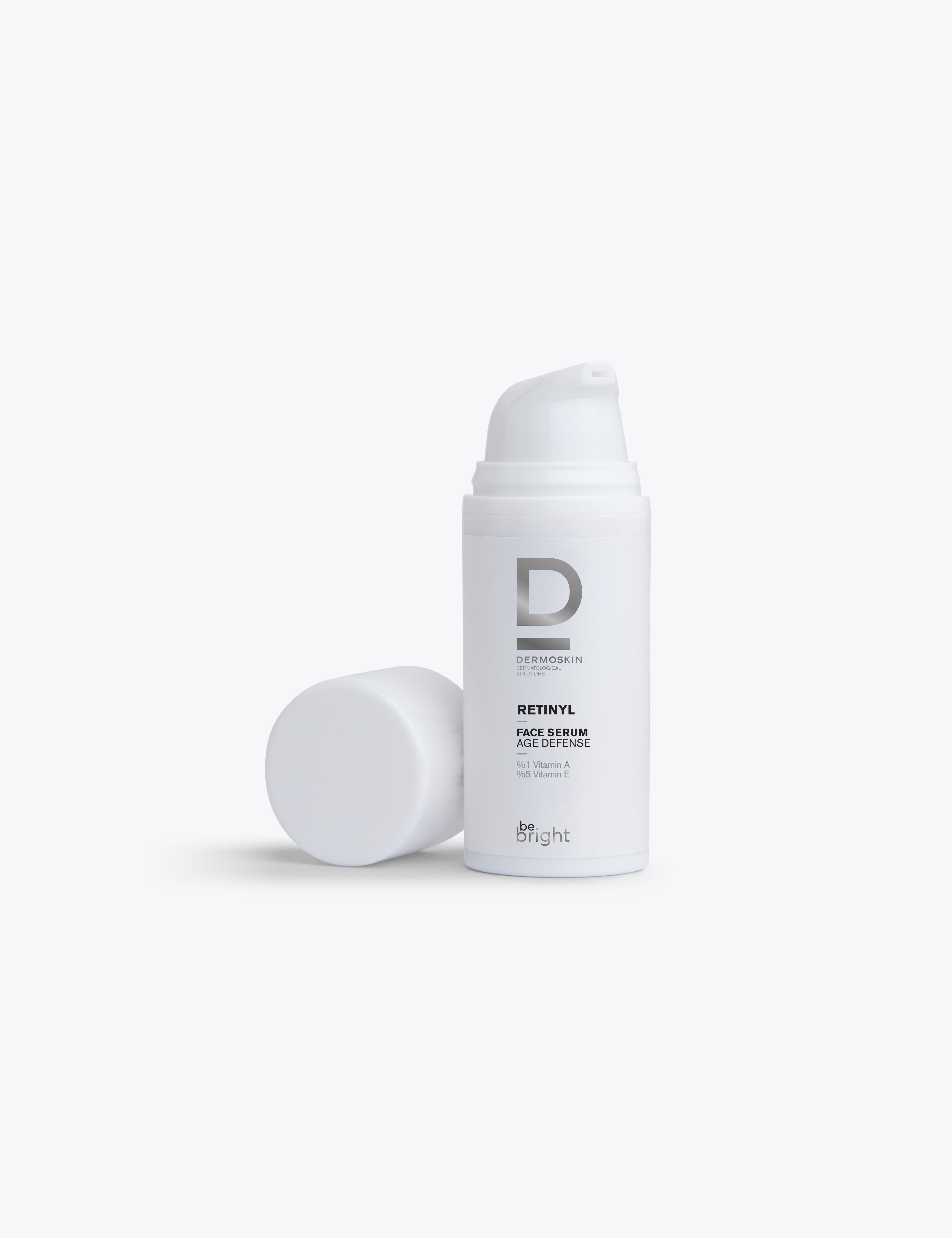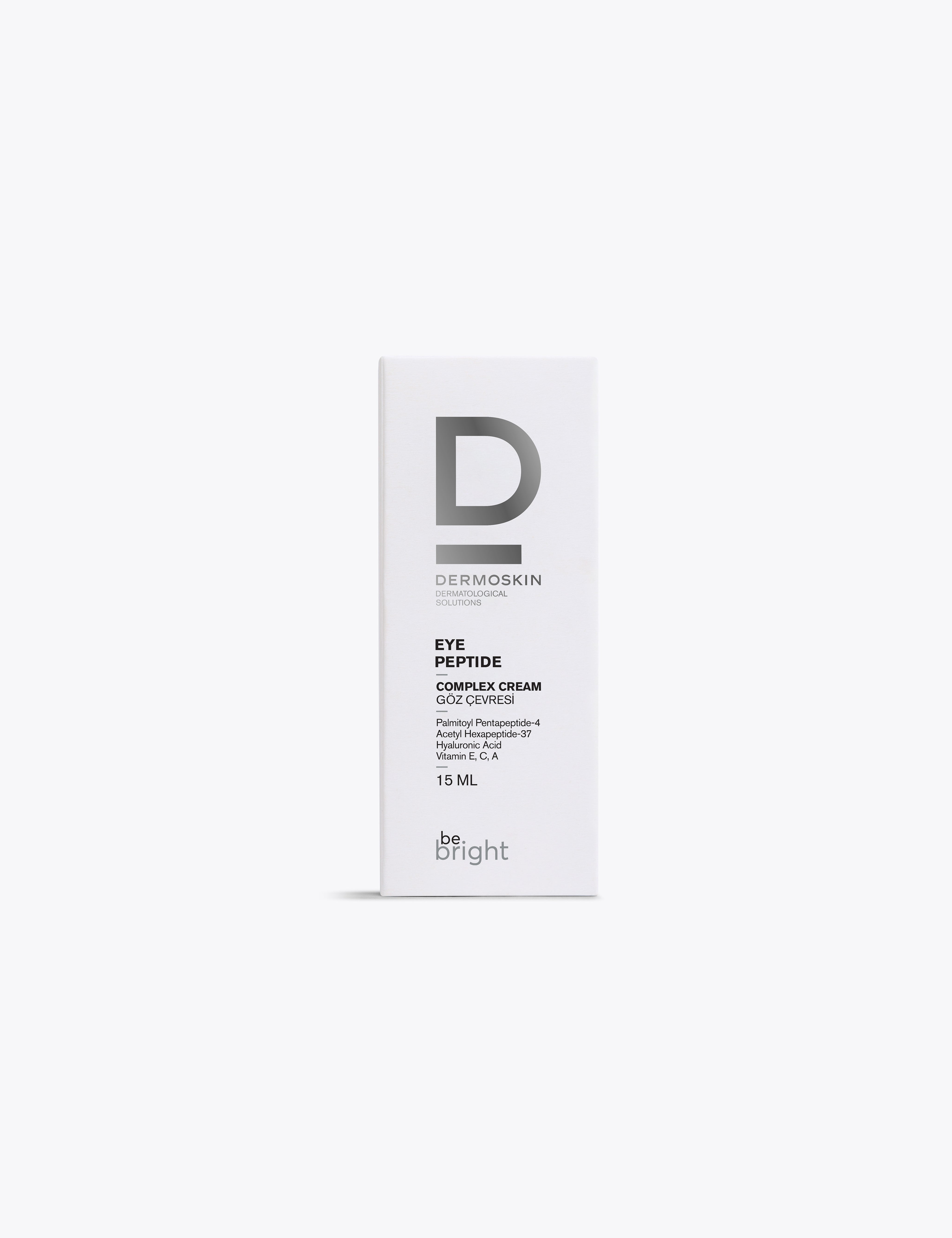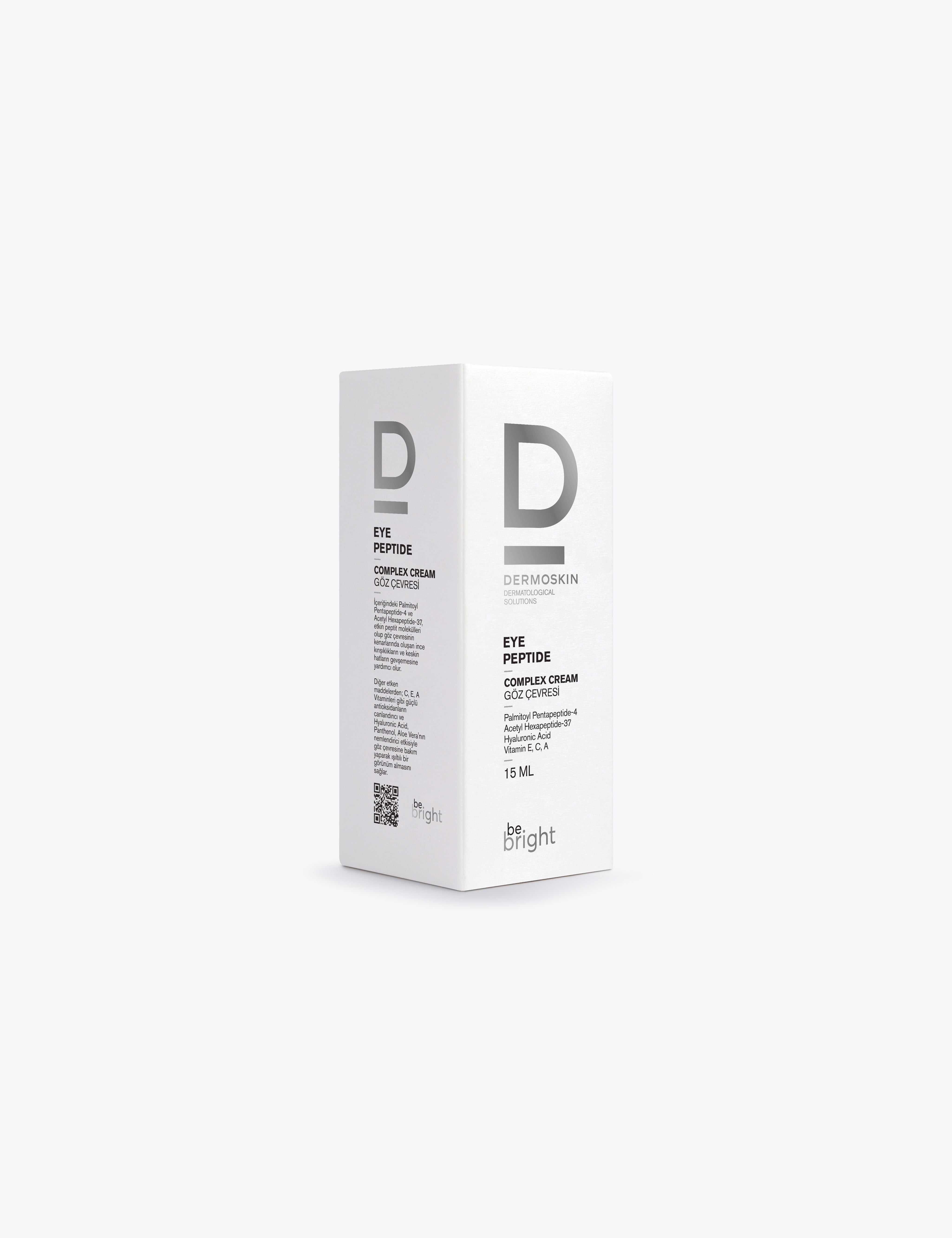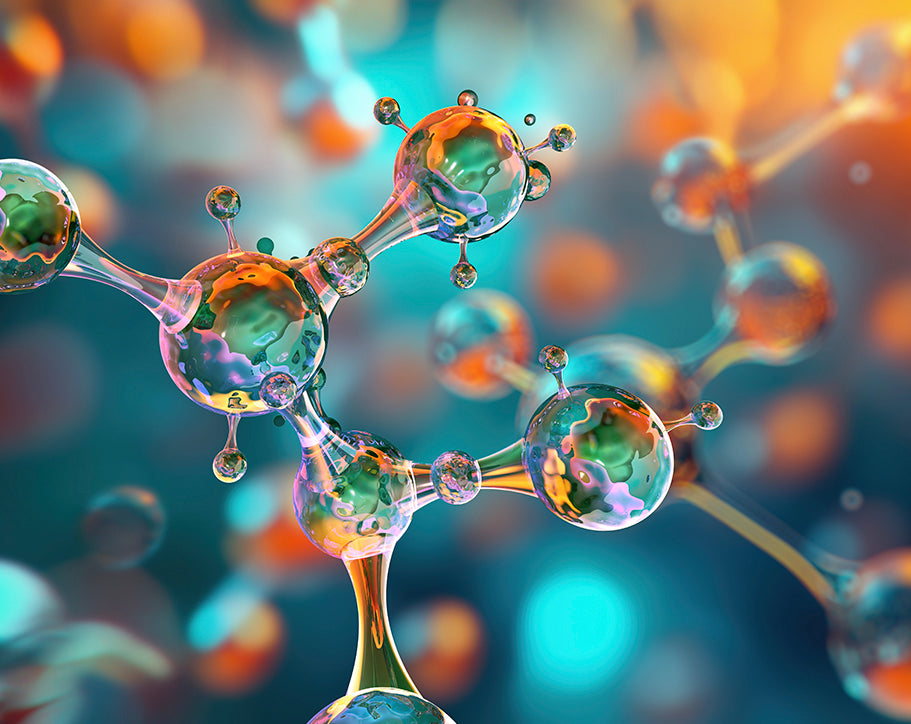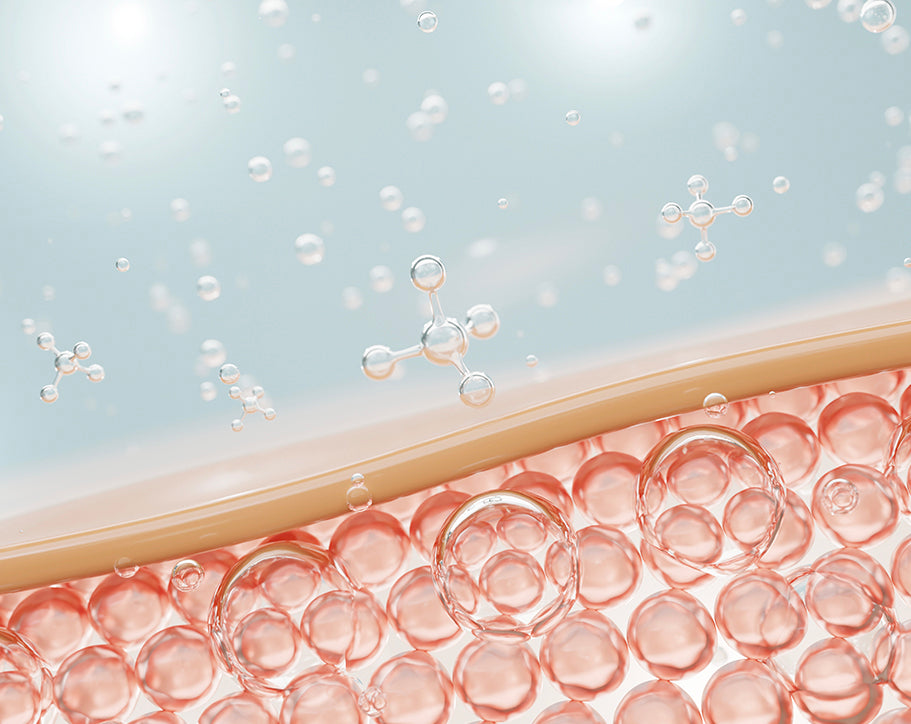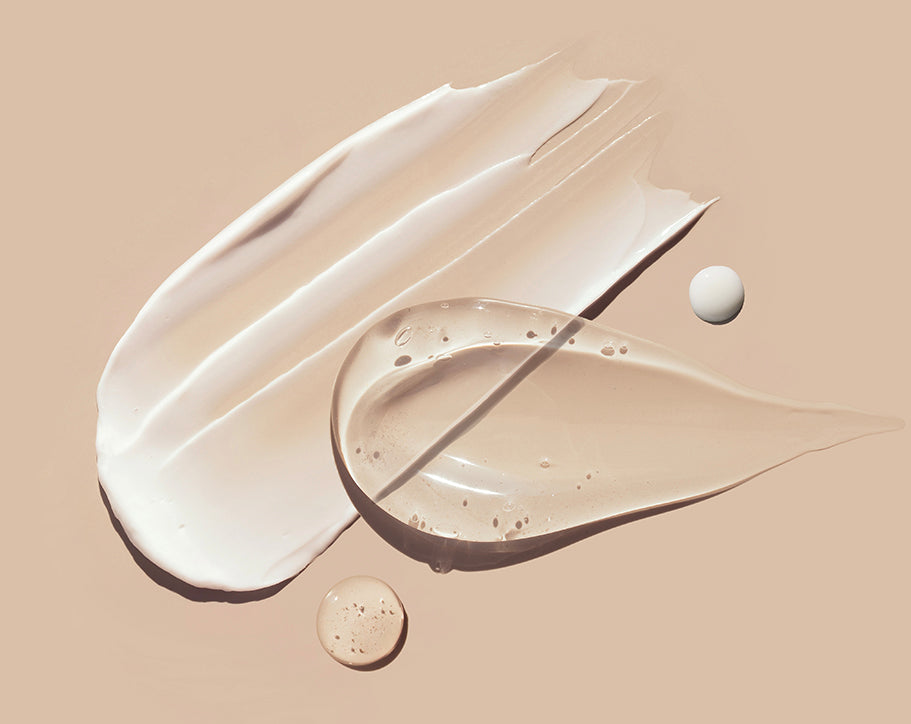Winter care that gives confidence to acne-prone skin
While most young people say goodbye to acne after puberty, some of us struggle with it for a lifetime. Factors such as oily skin, hormonal imbalance, stress, irregular sleep, poor diet, air pollution and wrong selection of skin care products can disrupt the balance of the skin and cause acne. Acne, which is generally perceived as a cosmetic problem, also brings with it self-confidence issues with unhealthy skin appearance and deep scars.
It is very important to support acne treatment with effective and correctly formulated complementary products. Especially in the winter months when we are exposed to the dry air of closed areas for a long time, acne problems caused by hormonal imbalance can worsen. For this reason, you should choose your winter skin care routine carefully. Dermoskin's winter care routine strengthened with the AcGun series supports acne control and increases your confidence with a healthy and vibrant skin appearance.
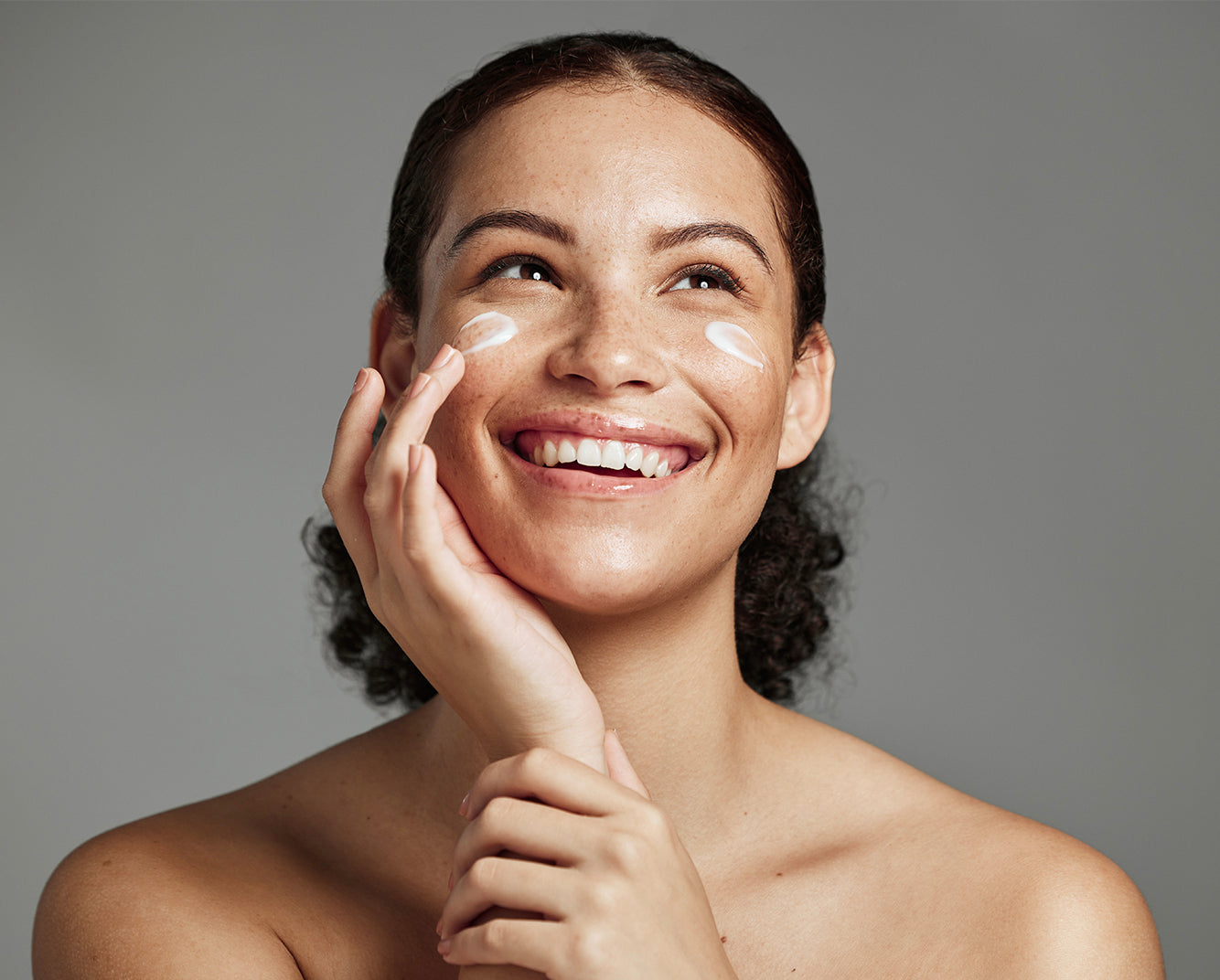
Anti-Acne Winter Care for Oily Skin
An anti-acne care series for those who want a smooth appearance that shines with health.
Anti-Acne Winter Care / Daytime
Oily and Acne Prone Skin | Revitalizing Toner
Oily and Acne Prone Skin | Day Cream
Anti-Acne Winter Care / Night
Oily and Acne Prone Skin | Revitalizing Toner
Anti Dead Cell
Retinyl Face Serum
Eye Contour Care Cream
Meet the Stars of Anti-Acne Winter Care!
Our starred content
Inappropriate cosmetic products and treatments can worsen acne problems. You can ask us your questions about your oily and acne-prone skin.
Questions and Answers
-
The best cleansers for oily skin tend to be those that contain salicylic acid, zinc, or clay. These ingredients help control excess oil, unclog pores, and prevent bacterial growth on the skin.
-
Yes, but it is recommended to do a gentle exfoliation 1-2 times a week. Chemical exfoliants such as salicylic acid or lactic acid are more effective for oily skin because they deeply cleanse pores and remove blockages.
-
Yes, oily skin also needs moisturizers. Light, water-based and non-comedogenic moisturizers should be preferred. Gel products are suitable for oily skin.
-
For oily skin, water-based, light and mattifying sunscreens should be preferred. The harmful rays of the sun can worsen acne scars.
-
To reduce acne scars, you can regularly use chemical peels, products containing niacinamide (vitamin B3), vitamin C and retinol. These ingredients accelerate skin renewal and lighten the appearance of scars.
-
Yes, some studies show that fatty foods, sugar, and processed foods can increase acne. However, it is important to consume foods that are high in water content and rich in antioxidants to maintain healthy skin.
-
Acne can also occur in dry skin, but this is usually different from the types of acne seen in oily skin. Although dry skin is less prone to acne, skin barrier disruption, excessive moisture loss, hormonal fluctuations and the use of incorrect cosmetic products can trigger acne formation.

